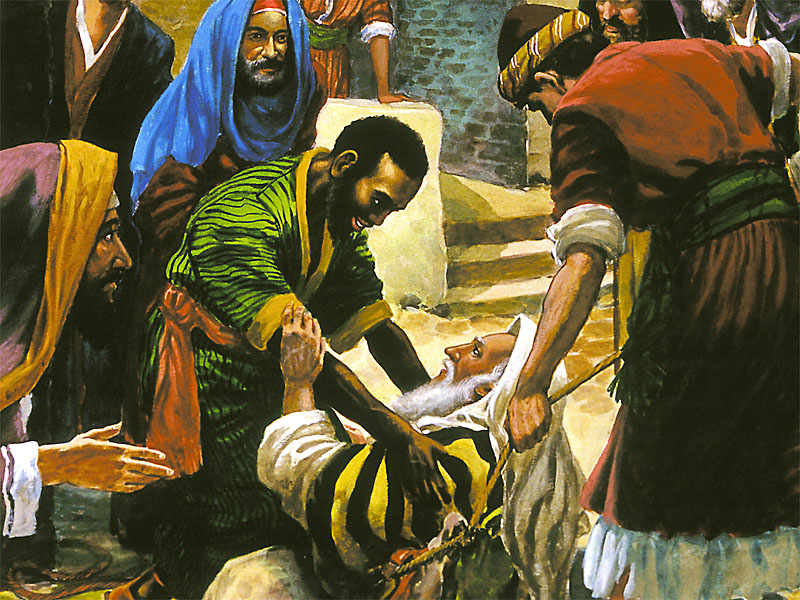
Matthew 8:5-13
When Jesus had entered Capernaum, a centurion came to him, asking for help. 6 “Lord,” he said, “my servant lies at home paralyzed, suffering terribly.”
7 Jesus said to him, “Shall I come and heal him?”
8 The centurion replied, “Lord, I do not deserve to have you come under my roof. But just say the word, and my servant will be healed. 9 For I myself am a man under authority, with soldiers under me. I tell this one, ‘Go,’ and he goes; and that one, ‘Come,’ and he comes. I say to my servant, ‘Do this,’ and he does it.”
10 When Jesus heard this, he was amazed and said to those following him, “Truly I tell you, I have not found anyone in Israel with such great faith. 11 I say to you that many will come from the east and the west, and will take their places at the feast with Abraham, Isaac and Jacob in the kingdom of heaven. 12 But the subjects of the kingdom will be thrown outside, into the darkness, where there will be weeping and gnashing of teeth.”
13 Then Jesus said to the centurion, “Go! Let it be done just as you believed it would.” And his servant was healed at that moment.
Obedience had been ingrained in me. I understood authority and submission to my superior officers. It’s called “the chain of command” and it’s the reason why armies function the way they do. I ultimately acceded my will to my superior, who’s under authority himself. I also have soldiers who I command. I led over 100 men as the occupying force in Palestine.
We were hated and despised.
My servant was sick, and I knew that he was suffering greatly, but I had run out of options. My servant was the only family I was allowed to have. Since I served as a centurion I was not allowed to have a wife for the duration of my service. Over the years I’ve kept good and trustworthy servants with me–these men were very dear to me. They became my family.
I certainly was aware that both my men and I lived in constant danger from radical Jews.
I had exhausted all my efforts to bring some relief and healing to him–and it seemed to be getting worse, not better. My “contacts” told me of an itinerant teacher who had a reputation as a healer. It seems Jesus had a large following and I realized that He could be my last option.
So I went to Him for help and Jesus responded. But He wanted to go with me to my home. His willingness to come encouraged me, but I simply couldn’t allow that. Jesus’ visit would’ve made Him ceremonially unclean–I was a Gentile, a “dog.”
My home was off-limits.
But I did understand something. I was under authority as an officer in the Roman army, and my men also took orders. Obedience meant survival in a hostile environment like Judea. Our entire unit was drilled constantly and we all understood the need for a “chain of command.” Each of us obeyed our superiors. We had to.
With all this in mind, I asked Jesus to heal my servant with just a word.
He marveled at this. He said that my adherence to protocol was evidence of real faith. Those who were with Jesus were told something earth-shaking. My trust meant something, He made me an equal with the Israel patriarchs. My faith was to be emulated by the Jews.
He then told His followers that my confident trust was respected and acknowledged as evidence of God’s favor.
Simply, Jesus spoke a word and when I returned home my servant would be healed. I returned home to find him healthy.
“Christ will always accept the faith that puts its trust in Him.”

Please visit my other site, alaskabibleteacher.com if you liked this teaching.







